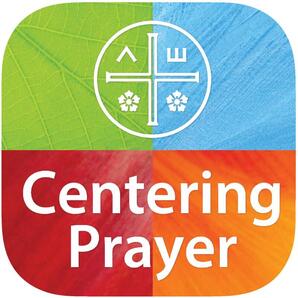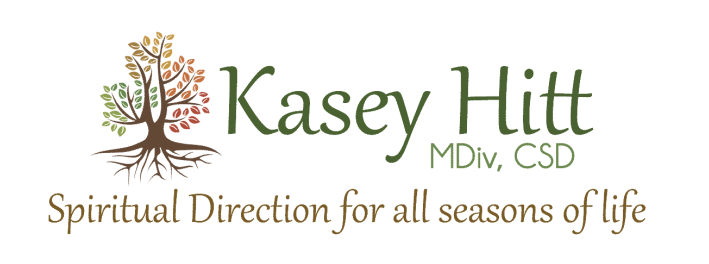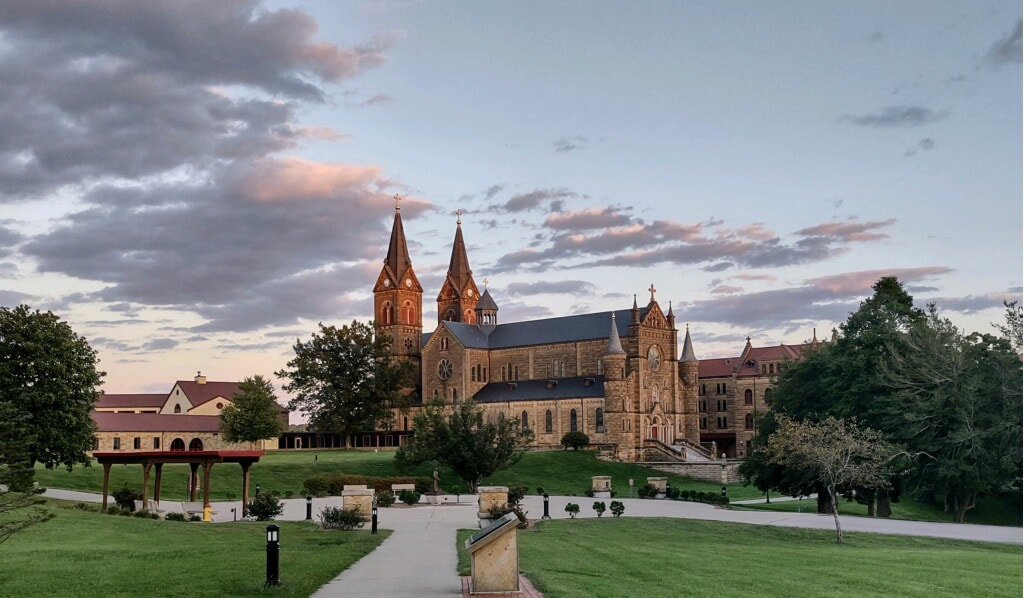 Buy or stream "Call the Midwife" on Amazon/Prime Video Buy or stream "Call the Midwife" on Amazon/Prime Video "Call the Midwife," that's where Wisdom met me after online Centering Prayer recently. The phrase that called to me from Wisdom of Solomon 6:12-20 was "appears to them in their paths," but I had no idea how She was going to appear because I was sick with COVID and able to do little after Centering Prayer but watch Netflix and sleep. All my plans for the week were thwarted. "I don't know how you'll meet me in my path, but I'd love for you to show up somehow," I silently and half-heartedly prayed. So I started watching the last BBC episode of season 12 of "Call the Midwife," and smiled when I saw how plans getting thwarted was the theme! With her big plans thwarted, Trixie, one of the midwives, needed to release her grasp on her ideal and open her hands to all of the Plan Bs being offered by her community. In doing so, she found them to be a better fit for her heart. Says narrator and actress in her eighties Vanessa Redgrave, about the community's efforts on behalf of Trixie as the last scene unfolds in episode 8: "It was makeshift. It was chaotic. It was perfect. It was like Mother Wisdom was speaking right to me (and not just about being sick for a week)! I stopped the show and backed it up numerous times to listen to the voice of one who had born witness to many deaths and births of people and plans. I wrote down her words as an extension to the Wisdom of Solomon, savoring them, allowing them to strengthen my heart and soul.
A week later as the Centering Prayer group continued with Wisdom of Solomon during the time of Lectio Divina following the silence, two phrases from 7:7-14 called to me: "in her hands uncounted wealth" and "unfailing treasure." I couldn't help but think of how Wisdom opens our eyes to a different kind of wealth, a more lasting treasure. Once more, Mother Wisdom's voice, sounding now like Vanessa Redgrave, echoed in my ear, "Here are life's riches next to you..." "Call the Midwife" just may be my new phrase for prayer! Wisdom is certainly showing Herself to be a dependable and delightful Midwife to the Soul! (You can watch "Call the Midwife" on PBS or Netflix and/or join me for online Centering Prayer sometime! ) A week ago, Steve had an experience of God at the 4 day silent retreat at St. Meinrad Archabbey that he will never forget. Here's his story in his own words...
"It wasn't that I ended up or happened to be at the retreat, it was the retreat ended up happening to me! I have a past that I hadn’t been able to deal with, in fact I let it define who I was. As a result I struggled with how God could love me. I read about His unconditional love in the Bible, it was preached from the pulpit, but I could never let it into my soul. During four days of silence and total disconnect from daily life along with Spiritual Directors as God’s conduit, I surfaced deeper sins I had refused to look at and became aware that all these sins were not who I was, but something I did. Remove what I did and I am still the child of God He created. In my silence focusing on listening to God I heard Him speak, “Steve, I love you.” And I melted. I cried. I felt lifted up. My spiritual awakening could not have happened without the silent retreat and spiritual direction. It created the environment where I could actually hear God speak to me. I have been so blessed. A couple of days later I awoke at 3:30 am giddy with life like Ebenezer Scrooge on Christmas morning." ________ The power of Silence and Spiritual Direction! Many thanks to Sally Sharpe for joining me to provide spiritual direction at this silent retreat. Note: Steve started to befriend Silence through Centering Prayer and a silent day retreat. You're welcome to join me online any Friday from 9am-10am CT for a Centering Prayer group. Beginners always welcome! Contact me for the Zoom link.  Photo by Damian Siodłak on Unsplash Photo by Damian Siodłak on Unsplash Choices can be difficult. Wanting to make the perfect one, I can struggle with “buyer’s remorse.” It can be about a purchase or any decision I have made or need to make (especially if others are concerned). Did I take enough time to make the best choice? What if I didn’t? Was I right? Was I wrong? I will replay the options. Especially if my choice does not please others, I will replay it even more. Sometimes it can become compulsive, stuck on a loop in my brain. We all have experienced the stress that comes from obsessive over-thinking. Over the years, I have tried a variety of ways to “throw a stick in the spokes” and stop the constant thought-cycle. The practice of Centering Prayer has been one thing that, gradually, has made a difference. Centering Prayer can be a challenge as one gets to discover all the places the unruly mind wants to wander instead of stay in the present (it is certainly not interested if the present has feelings it doesn’t want to feel!). As I have grown in acceptance of the brain’s (sometimes bizarre) escapades to do anything but feel reality and rest in God, I have grown in awareness of when I am joining its invitations to run away to the circus of compulsivity. Here are two simple ways of returning home:
The keys to both are patience and gentleness (two indicators or “fruits” of the Holy Spirit as described in Galatians 5:22-23). It may take a while, but with gentle persistence old compulsive paths will be less and less traveled. And relief will rise with your every return to the pathways of peace.  Spiritual practices, like meditation and even church-going, can become spiritual bypass—ways of bypassing reality both outside and inside of us, dissociating from wounds within and without, ignoring the healing work that needs to be done in our inner and outer world. But spiritual practices can also be vehicles for transformation of both ourselves and our world. How?—by giving us new ways of seeing and being (which is the whole point of authentic spiritual practice). Let’s take a look at a few practices... Conscious Breathing: With as little as 10 slow, complete exhales and 10 full, relaxed inhales, we can calm the fight, flight, freeze survival impulse, allowing us to move from a reactive, closed off, defensive place to a receptive, open, deeper place. Centering Prayer: Through daily practice of 20 minutes of silent surrendering to God’s presence & action, we let go of our ego-drivenness and receive inner healing of compulsions and soul wounds. Not only does this bring personal freedom but it releases us from projecting our compulsions and wounds on others and passing them down to our children. Lectio Divina: Spiritual reading allows a word or phrase in a small portion of inspired text, whether sacred Scriptures like the Psalms or a poem, to speak to us. Rather than bringing what we already know or studying it, we allow the text to study us! As we bring our story, our lives, to it, we humbly listen for the wisdom and guidance being offered (which may be encouragement to see a counselor or write a letter to your senator!). Awareness Examen: Looking over our lives at the end of the day through the eyes of God helps us become aware of God’s life-giving presence and action (and the times throughout the day when we were unaware or resistant). The patterns of what is life-giving and life-draining help us discern who we are and what we are to offer this world. Silent Retreats: Extended time in silence and solitude creates space for our souls to rest and play which opens us to better hear the “still, small voice” which may be drowned out by the external noise of daily life or the internal noise of comparing ourselves to others. There are so many practices I could list here but the point isn’t the practice itself, it’s the “fruit.” Seated meditation may not fit you. You may desire some kind of moving meditation, like dance or qigong. Or you may prefer to spend time in nature or doing art. What practices have you found that cultivate love in you? What helps you have eyes to see and tend to the suffering both inside yourself and in others? Which ways of wisdom help you discern what is yours to offer this world (not out of compulsion but compassion)? A Spiritual Director can companion you on this journey of discovery of spiritual practices. But remember, it’s not necessarily the practices, it’s the humans who are transformed by these practices, that this world needs. What do spiritual practices like Centering Prayer offer a hurting world?—YOU!  https://www.contemplativeoutreach.org/ centering-prayer-method/ https://www.contemplativeoutreach.org/ centering-prayer-method/ While they may share silence and look the same on the outside, join me in taking a look on the inside… Different forms of meditation offer the practitioner different gifts depending on their focus. Some of these forms and gifts are mindfulness, movement, awareness, breathing, insight, chakra-opening, loving-kindness, relaxation, guided, calming, and creativity. As one who meditates, I appreciate and practice a variety of methods and even combine some, but I call Centering Prayer my main practice. However, many do not understand how Centering Prayer offers anything different from other forms of meditation. Centering Prayer was developed by Trappist monks, Fathers William Meninger, Basil Pennington and Thomas Keating, to help bring the ancient practice of contemplative prayer within the Christian tradition to people outside the monastery—which is most of us! Inspired by early Christian contemplatives and the medieval text, The Cloud of Unknowing, their process—20 minutes of silence once or twice a day—allows the power of and presence in Silence to be accessed by those of us who live in the “world of words.” This prayer’s nickname, the "Prayer of Consent," reveals how it differs from other forms of meditation. Rather than focusing solely on being present to sounds and sensations or giving the ego mind something to do like count, follow our breath, or say a mantra, Centering Prayer’s sole focus is surrendering. We consent to the presence and action of God within us. During the 20 minutes of sitting comfortably, but alert, with head up and eyes closed (or with a resting gaze toward the floor), we introduce a “sacred word” as a symbol of our intention to consent. This can be a word like “Peace,” “Jesus,” or “Love.” Whenever we become aware of our mind being engaged with thoughts (no matter how interesting or enlightening!), we simply and gently say our sacred word. We come back to surrendering all—every plan, worry, person, to-do list, dream, ah-ha, observation, insight…you get the idea. We let go of everyone and everything, trusting God with and for all. Given the focus is learning to trust God, it does not matter how many times we catch ourselves wandering and returning. Every instance is an opportunity to “come home” and trust the Beloved with each. Some days we will find ourselves saying our sacred word quite often, for we may have more weighing on our hearts, minds, and bodies than other days. Notice how relational Centering Prayer is! It can certainly expose an unhealthy image of God which may be why a part of us rightly refuses to surrender! To explore that being a possibility rather than the normal ego tantrum of giving up control, go here. How we enter into Centering Prayer can help us consent. We see a model for this powerful and humble consent in Jesus, especially in the Garden of Gethsemane after asking to be spared from suffering but willing to surrender anyway. His deep trust in the Heart of God leads him to say what he taught his disciples to pray, “Thy will be done.” Jesus’ response echoes the words of his mother, Mary, after being told she would bear the Messiah. To this overwhelming and possibly dangerous news, she says to the angel bringing her the announcement, “Let it be done unto me according to Your Word.” Perhaps Jesus learned his prayer of surrender from her! Every time we enter into Centering Prayer, we join Mary and Jesus in this powerful, humble, and holy consent. For twenty minutes, we practice releasing our grasp on our plans, desires, abilities, and attachments. After coming to an end of our own words in prayerful petition, no matter how a situation may look to us (and others) on the outside, we trust in the presence and work of the One who dwells in secret on the inside. Try this:
*Contemplative Outreach offers an app with a timer and ways to enter into and end your time of Centering Prayer. And no matter what level of experience you have, you are always welcome to join me for communal Centering Prayer every Friday morning from 9:00 AM- 10:00 AM (Central Time Zone). Contact me for the Zoom link.  My Russian Blue cat, Birdie, on my lap during Centering Prayer My Russian Blue cat, Birdie, on my lap during Centering Prayer Cats should be the mascot of contemplation. They have resting awareness down. Some people think contemplation is laziness, but this is far from the truth. “Doing nothing so God can do everything” is hard work! It takes an active, yet relaxed, vigilance to stay present rather than follow the mind into the past or future where regret and worry reign. But like a good Zen master, the cat can teach us. "Every single creature is full of God and is a book about God. Every creature is a word of God," Meister Eckhart proclaimed in the late 13th century. I find this to be true as I spend time with my cat. Listening and watching with the ears and eyes of my soul, I discover she has a lot to teach me. Here's some advice she offers... 5 feline tips for contemplation (also known as "contemplative catnaps"):
Cats make contemplation look simple. While simple, it can be challenging. Surrender and serenity are daily exercises that may look different each day! A routine-loving cat still changes nap spots, so how do surrender and serenity look for you today? Watch a cat for a while and allow the Spirit of God, which enlivens both you and the cat, to speak to you through this furry part of Creation.  Photo by Darius Krause from Pexels Photo by Darius Krause from Pexels Honestly, I really don't. As a Spiritual Director, I'm listening and looking for life. For some this looks like a daily time set aside for reading Scripture and praying with words (whether silently, written, or spoken). This can be a very grounding and growing time. Or it can be a burdensome box on the spiritual checklist marked by guilt-if-I-don't-do-it. Even worse, it can be a time to grow the ego (rather than the mind of Christ). Reading the Bible and memorizing Scriptures are not a guarantee that one is on the path of and toward Life. Some things may have the appearance of life but underneath we find superstition or pride in disguise. However Spirit is in the process of utterly transforming our hearts (which impacts the lenses through which we see the world, including Scripture), that is what I am looking and listening for when I sit with a person in Spiritual Direction. Let me give an example: One person felt guilty because they did not want to do a one-year-Bible study initiated by their peers. I affirmed their resistance which was telling them the truth--should they say "yes" out of obligation, they would only grow resentment, not life, in their relationship with God and others. As I continued to listen, it became clear that this person would step out of their particular compulsions and into a deeper place the more they spent time in Nature (God's first revelation) and working with wood. Nature and Beauty were of utmost importance in growing in Love and Life. Their year would be better spent outside and in their workshop. There is no one-size-fits-all contrary to what you may have heard as a child, young adult, or a newbie to tending to the spiritual life. Having regular, uninterrupted time on the couch with a cat or dog or sharing a peaceful and delicious meal with one's partner, both are life-giving, love-growing practices. Others may find that silent meditation or reflecting on a poem expands their soul. Working with a dream from the night before, puzzling over a vision, wrestling with a spiritual question, painting, gardening, playing with children...the possibilities for spiritual practice and experience are endless because God is endless. It also does not have to be either-or when it comes to spiritual practice...either I read the Bible or I spend time in Nature. You might read the Bible in Nature. Spending time in Nature may give you new eyes with which to see the Bible when you do read it next (or you might discuss different ways to read Sacred Scripture with your Spiritual Director). So how do you know if your "daily quiet time" or spiritual practice is life-giving and growing? Reflect on the practice after you've engaged it for a length of time, at least a month. Any given day can feel like a slog and the fruit of the practice may show up outside of the time itself! For instance, after time in Nature, you may be calmer, less reactive, and more patient with others. Here are some questions to discover the fruit your practice is bearing (or not):
If you come for Spiritual Direction, I'm not going to give you Bible verses to memorize or critique your spiritual life. I'm going to listen for life within your life so that you may walk in the way that leads to Life (which is what the Bible encourages us to do!).  You may not be ready to go on a silent retreat or sit in 20 minutes of meditation, but how about trying a taste? It's easy. And since it's the season of pumpkin everything, let's try tasting silence through a slice of pumpkin pie! If you're not a fan of pumpkin pie, think of another food or drink you really enjoy. Now if you have a real slice of pie, great! If not, imagine tasting that first bite. Notice the flavors, texture, and temperature on your tongue. Allow yourself to savor the next few bites without rushing. What do you notice about the pie (or whatever you're savoring) that you may have missed if you had hurried through each forkful? Food and drink can rarely be savored when speed is involved, the same is true with silence. How do we taste and savor silence? With our ears. Ready to give it a try?
What do you notice now that you did not notice before you stopped and listened? Where did certain sounds come from, which ear did you hear them through? What sound most grabbed your attention? If in a quiet place, did you notice the sound of your own breathing? What was it like to do nothing but listen? How did your mind and the rest of your body respond? This is being present. It's a meditation practice. And yes, it counts. True, it's a great way to enter into a silent retreat or centering prayer meditation but if it happens to be the only spiritual practice you consistently engage this week or this month, that's fine! Just taste and see how pausing to listen and savor the sounds around you affect your soul. You never know, the next time you stop and savor the silence, you, like the prophet Elijah, may hear God's voice in a gentle whisper!  A poem I wrote right after a time of listening prayer six years ago. It recently came to mind as I was thinking about meditation. Meditation can calm the mind. In doing so, perhaps it offers an opportunity for the soul to remind us of what it's known & trusted since we were ages five and one! God, I pray that Lainey and Alex come to know You They already do. Okay God, then I pray they come to trust You. They already do. Then God, help them not to forget. (Pause) Amen.  My son was angry about getting family photos taken. This probably isn't far off from the way I looked on my own rage-filled day when I finally admitted all my ways of prayer had stopped "working." My son was angry about getting family photos taken. This probably isn't far off from the way I looked on my own rage-filled day when I finally admitted all my ways of prayer had stopped "working." A poem written in 2013 about what led me to meditation & other contemplative practices years ago. All my old ways of finding God kept failing And one rage-filled day I stopped trying Sat down wondering if I was worth finding Let go of seeking and began trusting And breathing. Many are the ways seeming right to a man I started recalling My ways kept putting me in charge of the finding who the Psalmist found futile escaping. |
AuthorKasey is a scarf, ball and club juggling spiritual director just outside of Nashville, TN. Play helps her Type-A, Enneagram 1 personality relax, creating space for poetry and other words to emerge. She also likes playing with theological ideas like perichoresis, and all the ways we're invited into this Triune dance. Archives
January 2024
Categories
All
|
By clicking “Sign up for E-News” I consent to the collection and secure storage of this data as described in the Privacy Policy. The information provided on this form will be used to provide me with updates and marketing. I understand that I may modify or delete my data at any time.


 RSS Feed
RSS Feed

